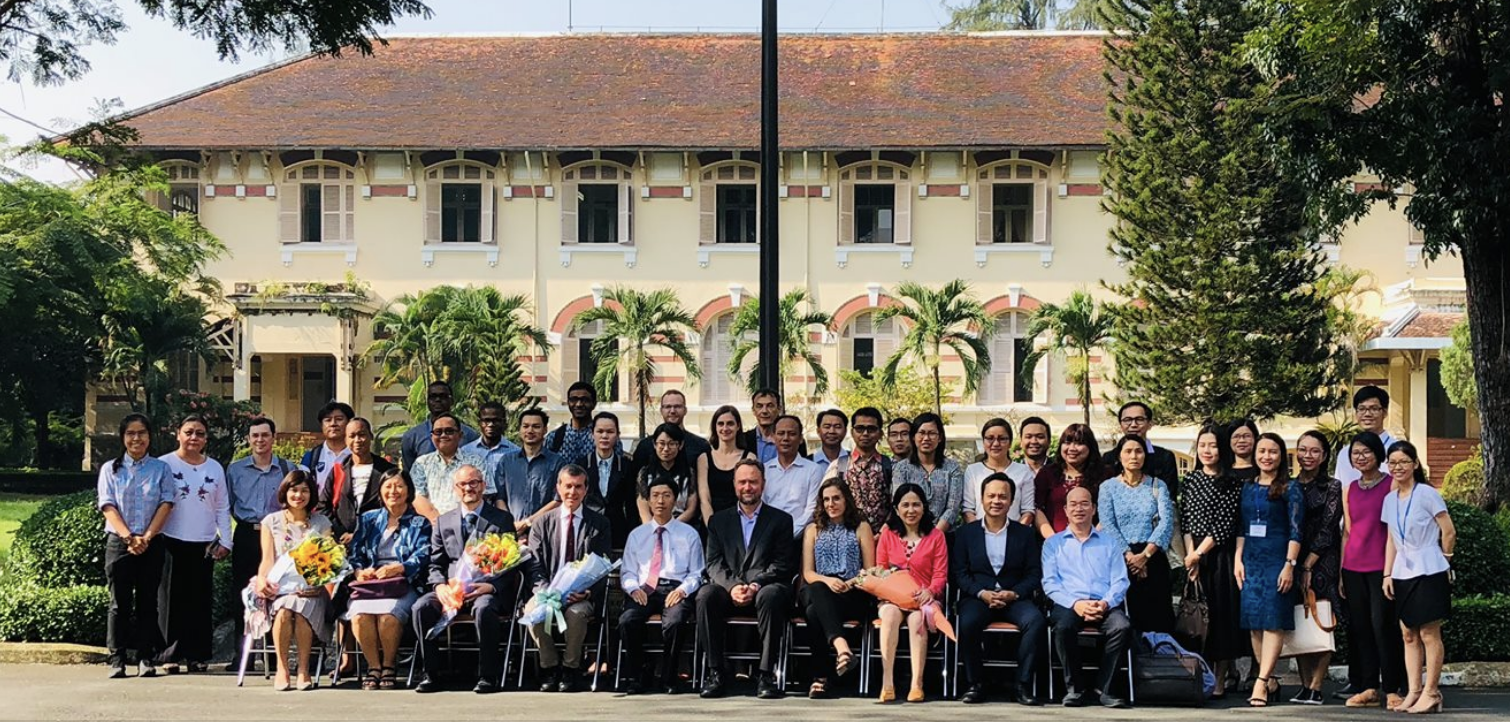16 Nov 2018
Pasteur Institut of Ho Chi Minh City international workshop: Epidemiology, Surveillance & Elimination of Viral Hepatitis
Facing current and future global health challenges requires a comprehensive understanding of health issues. In this context, the Pasteur Institut of Ho Chi Minh city have begun organising week-long international workshops after the inauguration of a fully equipped Teaching and Training Center. These courses place a strong emphasis on applied epidemiology and, since 2011, have drawn a huge response from the region.
Infectious diseases are a major public health issue and their impact is felt across the world. The Public Health Course series in 2018 will focus on hepatitis. Viral hepatitis is an international public health challenge, comparable to other major communicable diseases, including HIV, tuberculosis and malaria. Despite the significant burden it places on communities across all global regions, hepatitis has been largely ignored as a health and development priority until recently. Director of the WHO Collaborating Centre for Viral Hepatitis, Associate Professor Benjamin Cowie, was one of the invited facilitators and presenters for the course held in Ho Chi Minh City, Vietnam in early November.
The WHO has emphasized the need for a global health sector strategy on viral hepatitis stems from the scale and complexity of the hepatitis pandemic, along with growing recognition of its massive public health burden and the huge opportunities for action. To date, few countries have seized these opportunities; action has tended to be fragmented and inadequate. The time has come for a strategy based on a public health approach that is concerned with preventing infection and disease, promoting health, and prolonging life among the population as a whole. This strategy aims to ensure the widest possible access to high-quality services at the population level, based on simplified and standardized interventions and services that can readily be taken to scale and decentralized, including in resource-limited settings. A public health approach aims to achieve health equity and promote gender equality, engage communities, and leverage public and private sectors in the response.
The workshop Epidemiology, Surveillance and Elimination of Viral Hepatitis was specifically designed for health personnel, mainly but not exclusively from countries in Southeast Asia, including medical and health professionals, policy makers, disease researchers interested in expanding their critical understanding of the complex issues to combat viral hepatitis in the context of the global WHO strategy towards its elimination as a public health threat. It will address with lectures, case studies, field experience and open discussions the key challenges that the health system is facing to achieve the goals of WHO 2030 Agenda for Sustainable Development, which include a vision of a world where viral hepatitis transmission is halted and everyone living with viral hepatitis has access to safe, affordable and effective care and treatment; and the elimination of viral hepatitis as a major public health threat by 2030.
Specific topics included:
- Epidemiology of viral hepatitis;
- Diagnostic tests and ethical considerations;
- Surveillance: purpose and methods, optimizing screening strategies, risk reduction;
- Surveillance: management, data analysis for communication and assessment of surveillance;
- Prevalence and burden of disease of chronic hepatitis, cirrhosis, HCC;
- Prevention and treatment: vaccines and antivirals;
- Access to treatment, infrastructure to monitor delivery and compliance; and
- Role of government, NGOs, patients, industry.
Reproduced with permission from: Training Centre - Pasteur Institut of Ho Chi Minh City, Vietnam.


